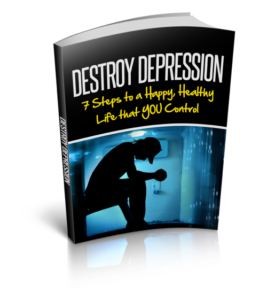Most of us know how it feels to not have a good night’s sleep. We can feel lethargic and irritable. Sleep is so important that even after as little as 24 hours we can start to be affected. Compare this to food and water. Generally, people can last a week or more without food and a few days without water, however, after just one full day without sleep our general health and well being suffers. Of particular concern is the effect lack of sleep has on our cognitive functions and our overall mental health. This post examines some of the current research on lack of sleep and poor mental health outcomes.
The Effects of Sleep Deprivation
You don’t need to have a sleep disorder to be sleep deprived. Work and family commitments can affect how much time we are able to allocate for sleep. Stress and lifestyle factors can also influence both the quality and quantity of sleep. Sleep deprivation can affect us both physically and mentally. Lack of sleep can contribute to memory problems, cardiovascular disease as well as behavioural problems. Poor sleep is also associated with weight gain and type 2 diabetes. There is some suggestion that sleep deprivation has been used as a way to control prisoners of war as well as recently being used as an interrogation method, essentially as torture. I won’t expand on these claims further but as usual, do your own research if you have any doubts as to the importance of sleep. Sleep is clearly important for both our physical and mental well-being but is often neglected as being crucial in an overall health plan.
Sleep Disorders and Mental Health
Recent research by Delhikar et.al (2019) found a relationship between individuals with Obstructive Sleep Apnea (OSA) and memory impairment. Their study demonstrated reduced auto-biographical memory recall, as well as an impaired ability to remember specific events from the past. The authors state this effect on memory is a contributing factor to depression in individuals with OSA. Krizan and Hisler (2018) found a link between restricted sleep and increased anger. They suggest losing as little as two hours sleep over a couple of nights was enough to produce increases in anger particularly when exposed to unpleasant situations. Additionally, they present studies that show short sleep duration is a major contributor to depression and substance abuse.
Anecdotal evidence would suggest that being continually tired whether by a sleep disorder or shorter sleeping hours would contribute to feelings of irritability and depression. Being tired just doesn’t feel good and some of you may be thinking, I don’t need science to tell me that. While it is true our own experience is what really matters, I feel it is helpful to realise the science behind it is validating that experience. The relationship between poor sleep and poor mental health is of course reciprocal. Individuals who experience depression or anxiety may have trouble sleeping and individuals who have trouble sleeping may have increasingly poor mental health. Hopefully the information presented so far has helped you to realise the value of sleep as part of your mental health approach.
Improving your Sleep
Regardless of your current situation there are steps you can take to improve your sleep. Many of them are common sense, such as, avoiding caffeine close to bedtime, reducing alcohol and tobacco and making sure your bed and bedroom are comfortable. Improving sleep quality is often referred to as sleep hygiene or sleep health. As it is beyond the scope of this post to provide solutions to every person’s individual sleep requirements and situation, I will provide a link to a great resource on sleep health. Tuck.com provide a comprehensive website on all aspects of good sleep as well as the relationship between mental health disorders and sleep. I have no affiliation, either financially or personally with this site but feel it is a great one stop resource for improving sleep. If you feel that your sleep quality or quantity is affecting your health, then do your own research as well as discussing with your health professional. Make sleep a part of your overall health plan and particularly an important part of your mental well-being. Sleep well.
Wishing you all the best in your journey
Phil Miranda
Sources:
Delhikar, N., Sommers, L., Rayner, G., Schembri, R., Robinson, S. R., Wilson, S., & Jackson, M. L. (2019). Autobiographical Memory From Different Life Stages in Individuals With Obstructive Sleep Apnea. Journal of the International Neuropsychological Society, 1-9.
Krizan, Z., & Hisler, G. (2018). Sleepy anger: Restricted sleep amplifies angry feelings. Journal of Experimental Psychology: General. Advance online publication. http://dx.doi.org/10.1037/xge0000522
Tuck, Advancing Better Sleep (2019) Everything you need for a great night’s sleep. Retrieved from http://www.tuck.com



